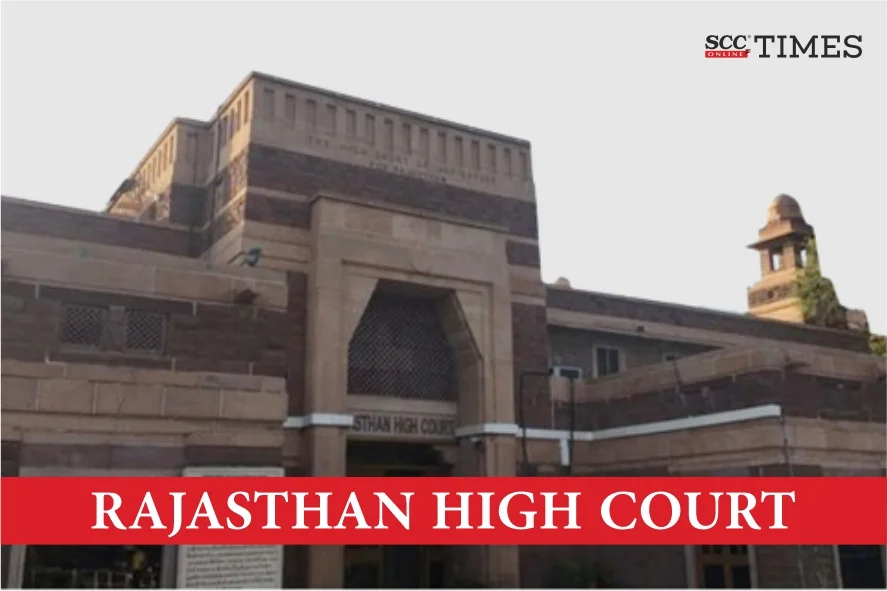Rajasthan High Court: In a parole petition filed under Article 226 of the Constitution of India seeking to quash the State Parole Committee’s order and requesting permanent parole, a division bench comprising of Ashutosh Kumar and Inderjeet Singh, JJ., held that overstaying parole was not a ground to reject the plea for permanent parole under Rule 14(c) of the Rajasthan Prisoners (Release on Parole) Rules, 1958 ( the Rules), and hence, ordered the quashing of the rejection order and directed the release of the petitioner on permanent parole, subject to certain conditions.
In the instant matter, the petitioner filed a parole petition under Article 226 of the Constitution of India seeking to quash the order of the State Parole Committee dated 15-02-2024 and requesting permanent parole. The petitioner was convicted for multiple offenses under the Penal Code, 1860 (IPC) and sentenced to life imprisonment. Despite serving over 14 years in custody and his eligibility under Rule 9 of the Rules, the petitioner’s application for permanent parole was initially rejected due to overstaying after a previous parole period. The petitioner challenged this decision through a writ petition, where the Court directed the competent authority to reconsider the petitioner’s application for permanent parole. However, upon re-evaluation, his application was again rejected on the same grounds. The petitioner contended that the competent authority had failed to apply its mind while rejecting his application and had also considered irrelevant observations from a different case. The petitioner argued for his eligibility for permanent parole based on his satisfactory conduct in jail, serving more than 15 years of his sentence, and the Court’s previous observation regarding Rule 14(c) of the Rules.
The Court stated that “a bare perusal of Rule 14(c) of the Rules reveals that the prisoners who have escaped from the jail or police custody or has attempted to escape from custody will not entitled to be released on parole. However, the present petitioner has overstayed after being released on parole and his case would not fall under Rule 14(c) of the Rules.” The Court noted that the petitioner had served over 15 years of his sentence, his conduct in jail was satisfactory, and there was a lack of proper consideration by the competent authority in rejecting his application. The Court also found fault with the competent authority’s reliance on a judgment unrelated to petitioner’s case. Consequently, the Court allowed the writ petition and directed the authorities to release the petitioner on permanent parole, subject to certain conditions, including furnishing a personal bond and maintaining peace during the parole period.
[Om Prakash v. State of Rajasthan, 2024 SCC OnLine Raj 1047, order dated 24-04-2024]
Advocates who appeared in this case :
Mr. Abhishek B. Sharma, Counsel for the Petitioner
Mr. Javed Chaudhary, Dy.G.A., Counsel for the Respondents








